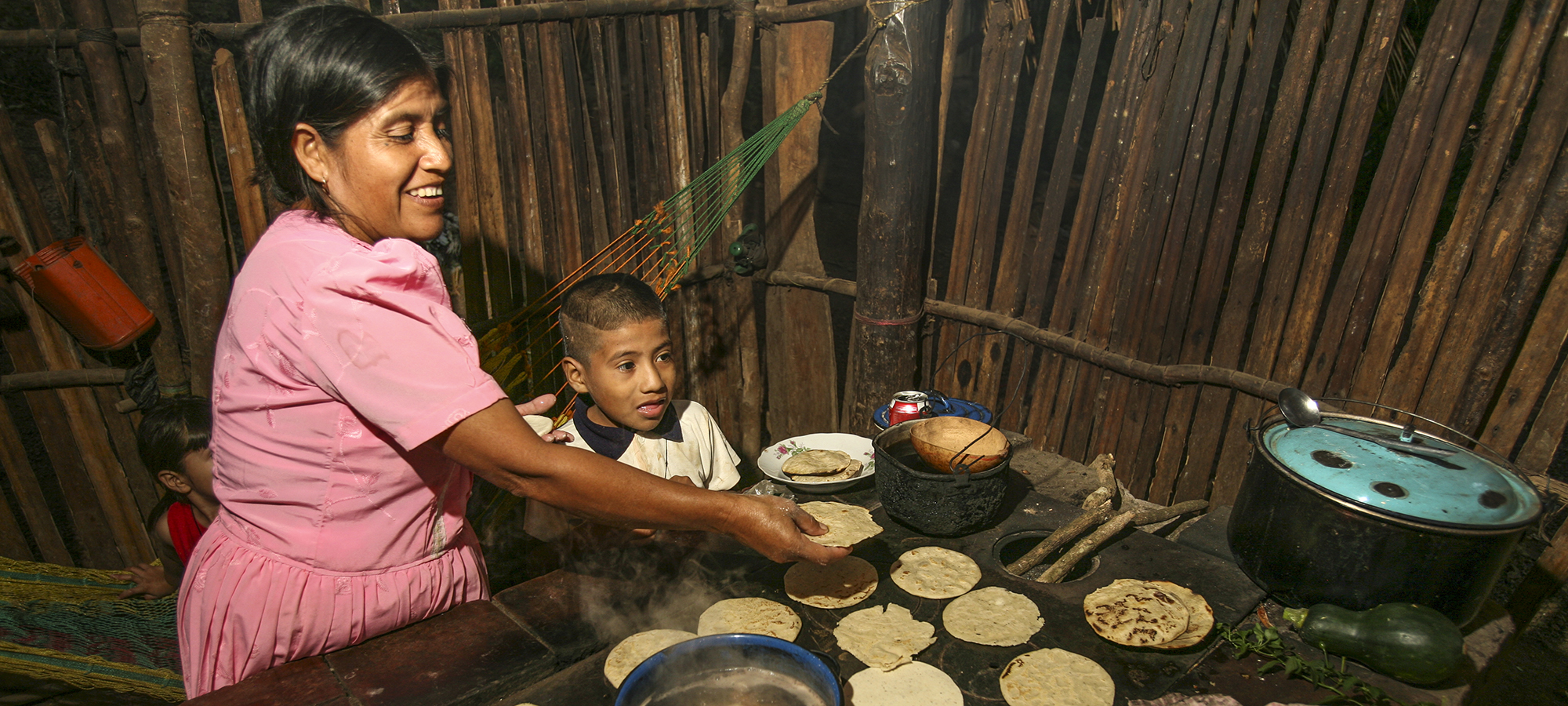
Food Program: Promoting the Human Right to Food
The right to adequate food is a human right established under international law, yet 50% of children under five in Guatemala are chronically malnourished.Project Harvest works with participants to educate them about their rights, to help them understand the forces that keep them in poverty, and to explore ways in which they might influence policy and decision-making to alleviate hunger in their communities.
The right to food is a human right and a binding obligation, well established under international law. The Universal Declaration of Human Rights of 1948 first recognized the right to food as a human right. It was then incorporated in the International Covenant on Economic, Social and Cultural Rights (Article 11) adopted in 1966. For the 160 countries that have ratified that Covenant, the right to food is a legally binding right, on equal footing with the human rights prohibiting torture and protecting freedom of speech and the press.
The following statistics give us an overview of the Guatemalan reality. By the year 2015, it was estimated that the poor in Guatemala accounted for 66.7% of the population. 92% of farmers live at or below subsistence level (that is, what they produce on their plot of land isn’t enough to feed themselves). It was also estimated that 23% of households suffered from hunger due to lack of economic resources.
In Guatemala, the legal agricultural minimum wage for the year 2016 is $440. According to the National Institute of Statistics, the cost of a food basket (what a family of 5.8 members needs to eat to maintain needed calories) is $598. The basic vital basket (what a family needs to spend on food, health, housing, education, and clothing) is $1,091.
These statistics speak for themselves. The reality, though, is much more dramatic. The families with whom Project Harvest works do not have their own farms, so must rent land to grow their food. Even so, they fail to produce enough for the year. Most years they will seek temporary employment on coffee or sugar cane plantations, where they might work an average of 40 days a year, often paid below the legal minimum daily wage. To make ends meet, they sell their handmade hammocks and reed mats, or collect and sell fire wood.
At the best of times, with a good rainy season, plantation work and successful sales of handcrafts, families are still poorly fed. So when there are droughts, excessive rainfall, or when diseases such as coffee blight impact the availability of work, families suffer severe periods of hunger and poor health, making them extremely vulnerable.[exacerbated by the fact that the Guatemalan government seems incapable of ensuring their right to food.] Guatemalan farmers are aware that this situation is not normal, and some see it as unjust. They believe that the government and society in general have an obligation to guarantee them at least the right to feed themselves properly.
Project Harvest works with families in two ways to promote the right to food. First, by implementing gardens where families harvest vegetables that allow them to diversify their diet; and second, by way of a formation program. We provide spaces for reflection and analysis about the circumstances that surround poor families, and workshops that explore ways to contribute to the transformation of their reality in order to advance toward a more dignified life.
